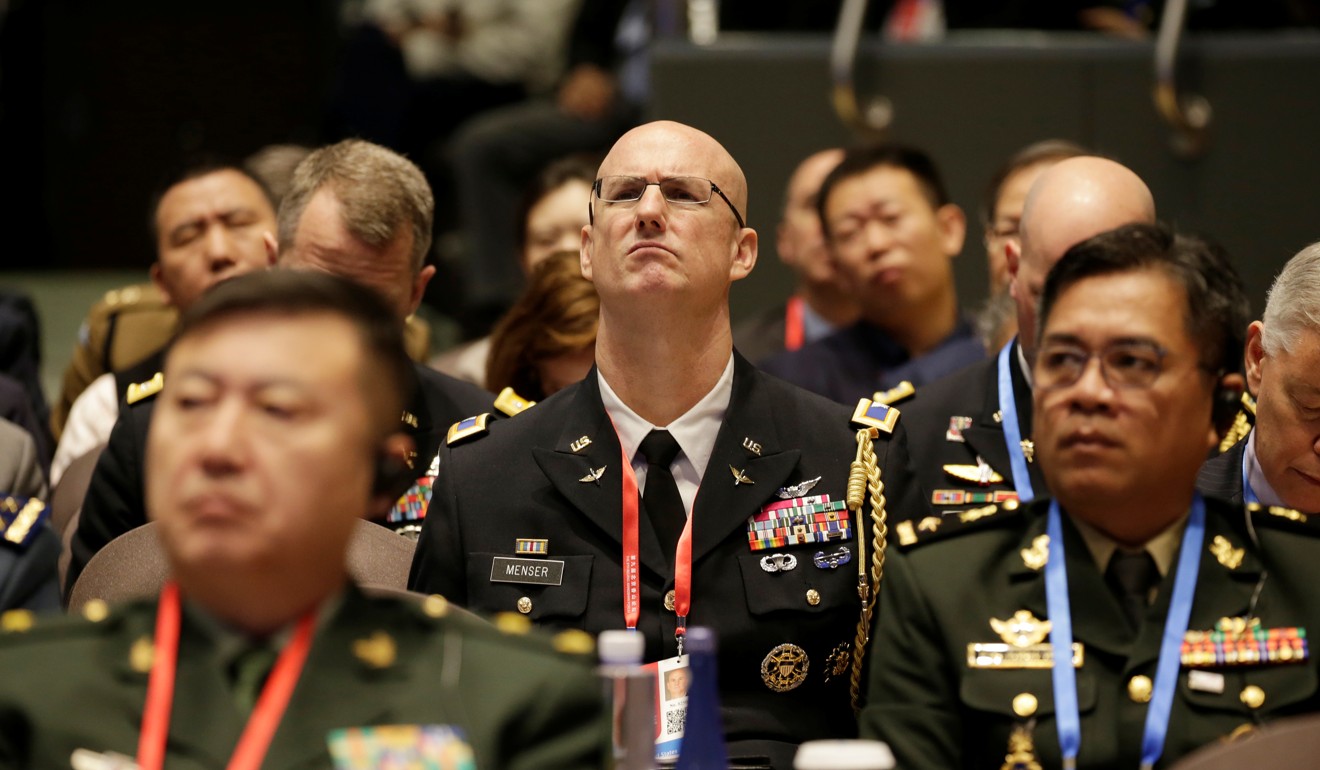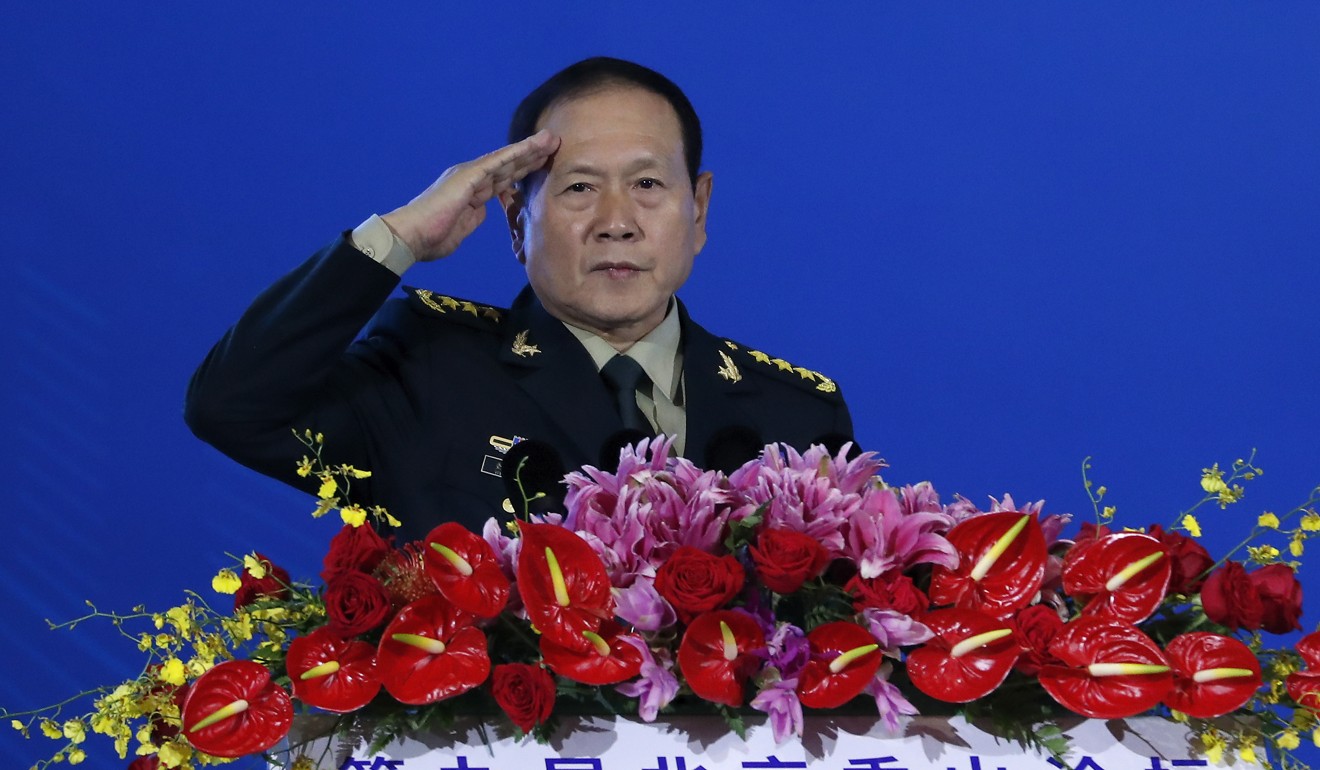
China uses Xiangshan Forum to raise its profile on regional defence issues
- More than 600 people, including 76 official delegations, 23 defence ministers and six chiefs of staff attend event in Beijing
- Chinese leaders keen to promote their vision of regional order amid rising concerns over Quad alliance
Is Beijing becoming anxious about the strategic alliance between the United States, Japan, Australia and India, known as Quad? The short answer is yes.
The ninth Xingshan Forum was hosted by the China Association for Military Science and the China Institute for International Strategic Studies, and ran from October 20-22 at the Beijing International Convention Centre.

Since its launch in 2006, the forum has become an important platform for dialogue and cooperation on defence and security issues, on both the regional and global level. It is attended by dozens of official delegations and hundreds of security and defence officials and experts.
This year’s event welcomed more than 600 people, including 76 official delegations, 23 defence ministers, six chiefs of staff, and representatives of international and regional organisations.
It also encompassed a China-Asean (Association of Southeast Nations) defence think tank exchange.
China’s rise does not make it America’s competitor, Pentagon official says
As well as the four plenary sessions and eight discussion sessions, there were closed-door round tables on a range of topics including the Indo-Pacific.
Through the forum, China is trying to engage leaders, officials and experts, and promote dialogue between other stakeholders and actors.
He called for a joint effort to address security challenges and safeguard international order through dialogue and cooperation. He urged nations to unite and uphold the global order with the United Nations at its core, and called for the creation of security mechanisms suitable to the region’s development and situation.
The letter reiterated many of the points Xi made last year on regional issues and suggests it is a major concern for Beijing.
US delegates set for a tough time at Beijing security forum
China is trying to build a new regional security architecture by knitting together a web of existing institutions to achieve its strategic goals, so it is keen to build consensus.
The forum represents China’s attempt to have a greater voice and be understood by the world. It is developing and honing its tools for global security and wants to promote a vision of world order that draws on ancient Chinese philosophical traditions and theories of statecraft.
Statements relating to the reunification of China attracted a lot of attention from the global media and reflected China’s hypersensitivity to issues of territorial sovereignty.

The country would never attach any political strings, force nations to take sides, interfere in other countries’ domestic affairs or push its agenda onto others, he said.
The event also provided an opportunity for people to speak out against what they see as Chinese growing assertiveness in the region and its lack of openness. While calling for greater openness in world affairs, the Chinese delegates declined to answer questions on whether China would open its markets to global social media platforms like Twitter and Facebook.
Nevertheless, the forum has evolved as a leading platform for the discussion of key security and defence issues and is helping to build understanding.
Rajeev Ranjan Chaturvedy is a visiting fellow at the S. Rajaratnam School of International Studies, Nanyang Technological University in Singapore and regular participant at the Xiangshan Forum
